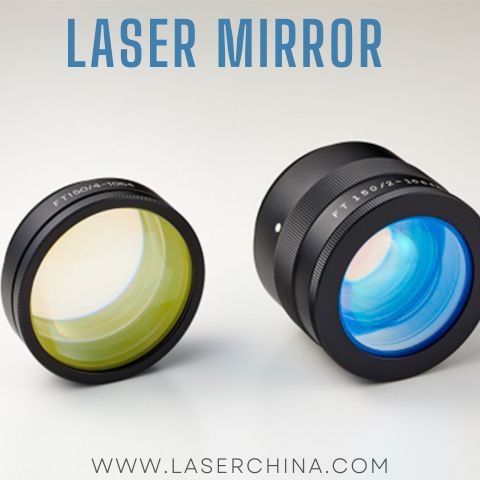What is a Laser Mirror?
A laser mirror is a highly specialized optical component engineered to reflect laser beams with maximum efficiency and minimal distortion. Unlike standard mirrors, laser mirrors are coated with precision dielectric layers designed to handle high power densities, specific wavelengths, and maintain beam quality.
At LaserChina, we manufacture laser mirrors that exceed industrial expectations—trusted by laboratories, OEM manufacturers, and laser system integrators globally.
Why Laser Mirrors Matter in Advanced Laser Systems
Laser mirrors are not just reflective surfaces—they are critical for beam alignment, redirection, and stabilization. Their design determines:
-
Reflectivity efficiency
-
Damage threshold
-
Beam divergence control
-
Thermal resistance
Without a high-quality laser mirror, even the most advanced laser systems can suffer energy loss, misalignment, or optical damage.
LaserChina’s Expertise in Optical Engineering
LaserChina brings over 20 years of R&D in precision optics, backed by ISO-certified production standards and strict quality control. Our team includes:
-
PhD optical physicists
-
Certified laser technicians
-
Experienced production engineers
Every laser mirror is developed under stringent conditions to meet the demanding needs of medical, industrial, defense, and research applications.
Types of Laser Mirrors Offered by LaserChina
| Mirror Type | Wavelength Range | Coating Type | Use Case |
|---|---|---|---|
| Dielectric Mirrors | 193 nm – 10.6 μm | Multilayer Dielectric | High-power laser redirection |
| Metal Coated Mirrors | UV to IR | Gold, Silver, Aluminum | Broadband reflectivity |
| Ultrafast Laser Mirrors | 800 nm – 1064 nm | Low GDD Coatings | Femtosecond laser systems |
| Beam Steering Mirrors | Custom Ranges | AOI-Optimized Coatings | Optical paths, galvanometers |
Benefits of Using Laser Mirrors from LaserChina
-
>99.9% Reflectivity at design wavelength
-
High laser damage threshold (>20 J/cm² typical)
-
Low absorption substrates like fused silica or silicon
-
AOI customization (0°, 45°, 60° and more)
-
Extended lifespan even in high-energy laser environments
Applications of Laser Mirrors
Laser mirrors are pivotal in:
-
Laser cutting and welding
-
Medical lasers (surgical and dermatological)
-
LIDAR and remote sensing
-
Scientific research (interferometry, spectroscopy)
-
Military and aerospace targeting systems
These industries rely on ultra-stable optical paths, and any deviation caused by sub-par mirrors can lead to critical errors or system failure.
What Sets LaserChina Apart?
-
Custom Engineering: We design according to your wavelength, power, and AOI requirements.
-
Cleanroom Assembly: Prevents contamination that could affect beam quality.
-
Testing Transparency: Every mirror undergoes interferometric testing, LDT certification, and spectral analysis.
-
Fast Turnaround Times: Efficient production cycles mean you get your parts faster without sacrificing quality.
How to Choose the Right Laser Mirror
Here’s what to consider before purchasing:
1. Wavelength Compatibility
Make sure the mirror’s coating is optimized for your laser’s output.
2. Angle of Incidence (AOI)
Most coatings are optimized for 0°, 45°, or custom AOIs. Misalignment leads to reflectivity loss.
3. Substrate Material
Choose based on heat resistance and thermal expansion: fused silica for high stability, silicon for IR use.
4. Laser Power
High-power systems need mirrors with a high laser damage threshold.
5. Polarization
Ensure coatings support your laser’s polarization (s- or p-polarized light).
Frequently Asked Questions (FAQs)
Q1: Can laser mirrors handle femtosecond or ultrafast lasers?
Yes, our ultrafast laser mirror are engineered with ultra-low group delay dispersion (GDD) coatings to preserve pulse integrity.
Q2: Do these mirrors work with CO₂ lasers?
Absolutely. We offer ZnSe and Si-based mirrors specifically designed for 10.6 μm wavelength compatibility.
Q3: What’s the difference between dielectric and metallic mirrors?
Dielectric mirrors offer higher reflectivity and damage thresholds, while metallic mirrors provide broader spectral reflectance.
Q4: Can LaserChina customize laser mirrors for unique systems?
Yes, we offer full OEM customization including size, coating, AOI, and substrate preferences.
Q5: How are laser mirrors tested?
Each mirror undergoes spectrophotometry, LIDT testing, and interferometric inspection to ensure perfect flatness and reflectivity.
Technical Comparison Table: Dielectric vs. Metallic Laser Mirrors
| Property | Dielectric Mirror | Metallic Mirror |
|---|---|---|
| Reflectivity (at λ) | >99.9% | 95–98% |
| Laser Damage Threshold | Very High | Moderate |
| Bandwidth | Narrow | Broad |
| Polarization Sensitivity | Yes | Low |
| Coating Durability | Excellent | Moderate |
Final Thought
When your system depends on laser precision, choosing the right mirror is not an afterthought—it’s mission-critical. Whether you’re fine-tuning a femtosecond pulse or maximizing throughput in laser cutting, LaserChina delivers optics engineered for performance and endurance.


